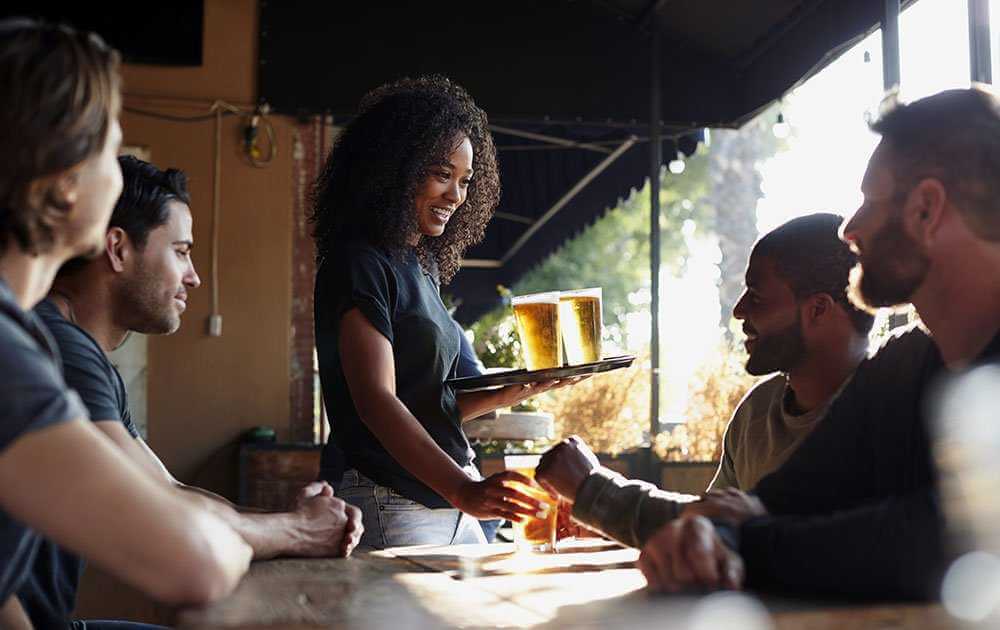In many states, almost all employees and their managers must undergo a state-approved Responsible Beverage Service Certification Program, simply known as RBS Certification. Many, especially those working in alcohol-serving establishments, don’t know what an RBS certification is; however, in this article, we’ll talk about RBS certification and the steps needed to be RBS certified.
If you are planning to work within the alcohol-serving industry, then there’s a likelihood you will need to undergo training. Worry not, as we will discuss the basic steps to get the certification. Read further down below to know more about RBS certification.
What is RBS Certification?
RBS stands for Responsible Beverage Service, and those who plan on working within the alcohol-serving establishments must undergo this training. The training program implies that servers are responsible when serving alcohol within the premises. In addition, when properly, they reduce the risk of alcohol-related accidents due to intoxication.
What is the RBS Training Program All About?
Assembly Bill 1221 of 2017 designed the RBS Training Program Act to reduce or mitigate alcohol-related accidents and harm within the community. In most states, the Alcoholic Beverage Control mandates this program to anyone working on the premises, like managers and servers, to be educated on the risks and dangers of serving alcohol to already-intoxicated patrons and minor individuals.
To date, there have been around 56,000 ABC licensees with on-premise privileges, which means alcohol can be served within the premises. On-premises usually comprise restaurants, bars, tasting rooms, stadiums, clubs, hotels, movie theaters, caterers, and many more.
Any server or manager must take the exam through the RBS portal to meet the requirement. Also, they need to take the training from an authorized RBS training provider and pass the exam no more than one month after completing it. Also, managers and servers working in the alcohol-serving industry must be certified after two months of employment.
Frequently Asked Questions
Perhaps you usually heard about RBS certification when you entered the food and beverage service industry. If you have some questions about this compliance, you can find it here.
How to get your RBS Certification?
After the completion of your training program, you are required to take the state exam with a maximum of three attempts within the next 30 days. In addition, you will need to get at least 70% to pass the exam.
After passing the exam, you will be given your Alcoholic Beverage Control certification number through the RBS portal.
This certification number is what you or your employer will show if the Alcoholic Beverage Control people ask for any proof of your RBS certification during the inspection of the premises. If, in this case, a staff or a manager is found to have faked or hasn’t taken the RBS certification program while working within the premises, the business will most likely face disciplinary action.
What Does the Training Cover?
Serving alcohol is fun, rewarding, and fulfilling, but that doesn’t mean you are excluded from potential liabilities and lawsuits. RBS training program is designed for servers and managers to be educated on
- Primary responsibility as an alcohol server
- Knowledge and tools needed to reduce or prevent services rendered to intoxicated individuals or minors
- Social impacts of alcohol consumption
- Alcohol’s impact on the body
- Responsible practices related to the serving and selling of alcoholic beverages
These are some common topics the RBS training program covers. While some states might have a different scheme, all of these follow the same concept of responsible alcoholic beverage serving.
Who Can Be an Alcohol Server?
An individual who plans to pour and serve alcohol to patrons must be 21 years of age when serving in California and other states. In addition, employees 18 to 20 years old in food-serving establishments that also serve alcohol are only permitted to serve and not pour alcohol or serve one to patrons.
Starting July 1st of 2022, their managers, staff, and servers are required to have a valid RBS certification issued by the ABS or state department. Furthermore, servers or employees within the alcohol-serving establishment are not allowed to serve or pour alcohol within the premises. New or existing employees are required to undergo training and pass the exam within the next 60 days.
Conclusion
Serving alcohol is one thing, and getting RBS-certified is another, which is why if you are planning to serve within the premises of an alcohol-serving establishment, we strongly recommend you undergo RBS training to ensure you are conforming to the state rules and regulations.
Lastly, getting certified also means you are aware of the dangers of serving alcohol to the public, especially to minors and intoxicated persons. If you undergo training, you are one step further in keeping the community safe and secure from alcohol-related accidents and fatalities.







